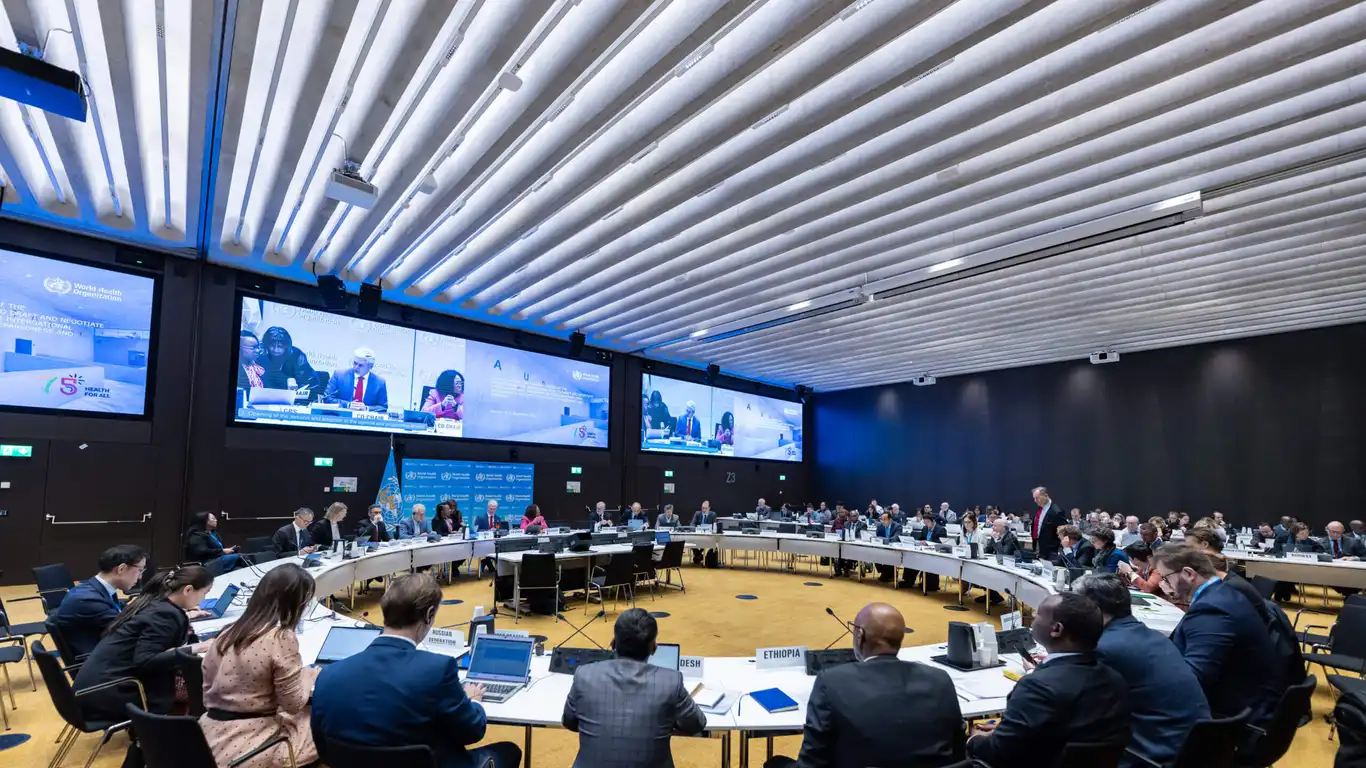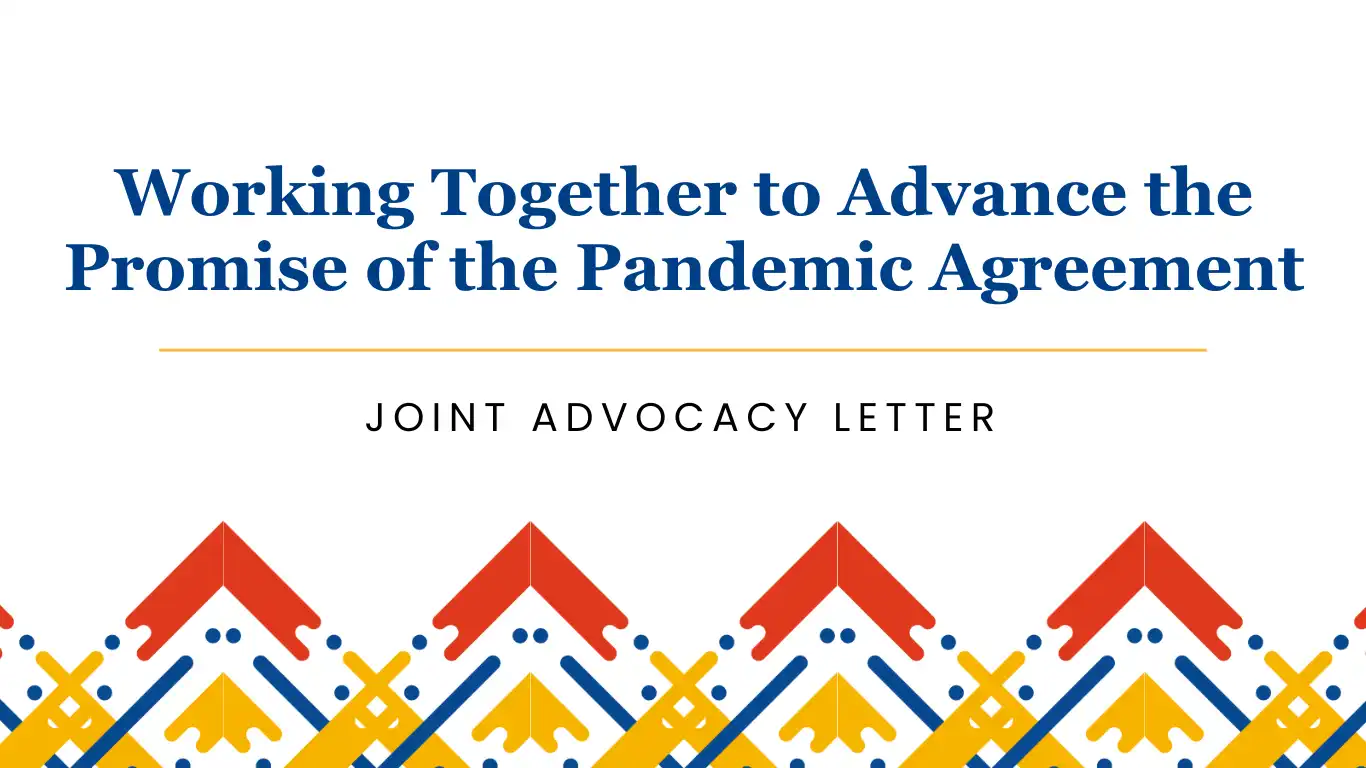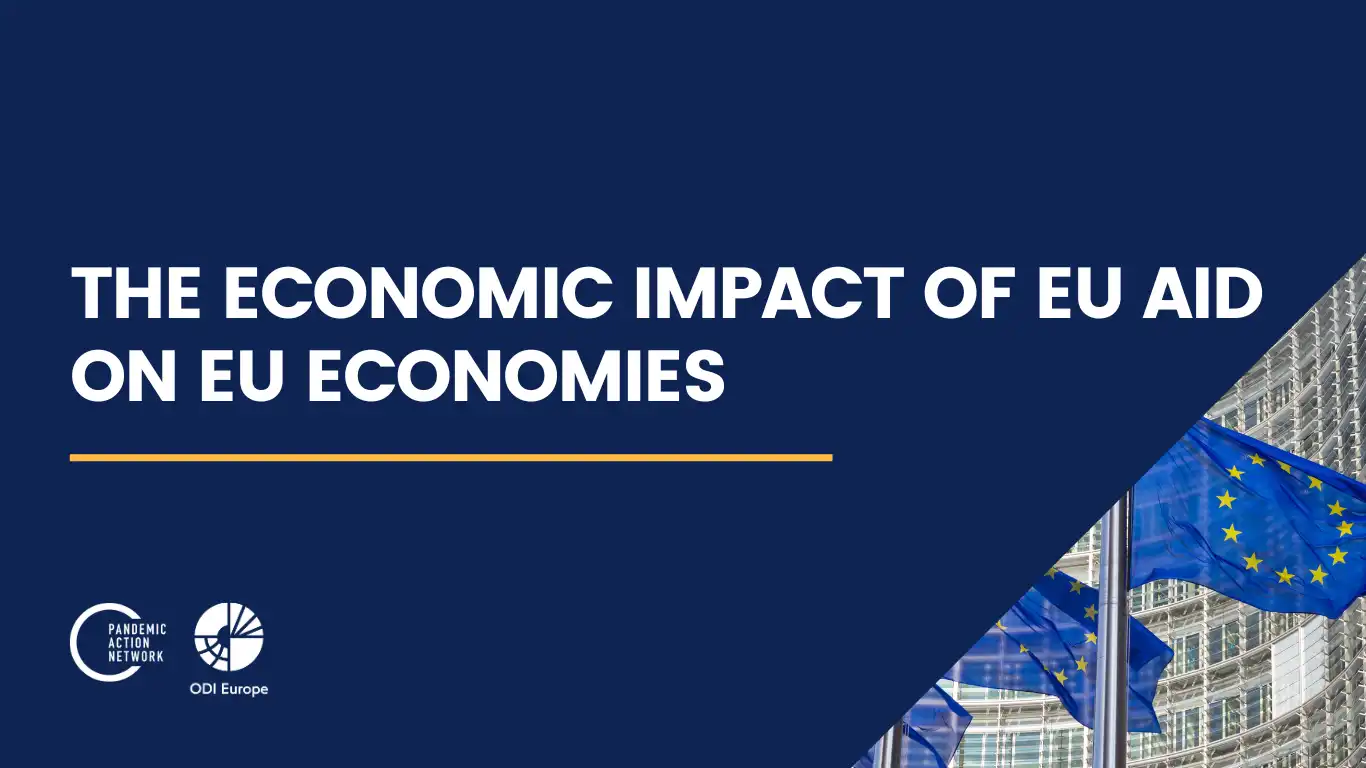Pandemic Action Network’s statement on the negotiating text of the Intergovernmental Negotiating Body (INB) to draft and negotiate a World Health Organization agreement on pandemic prevention, preparedness, and response (pandemic PPR).
Pandemic Action Network appreciates the opportunity to provide feedback on the Negotiating Text of a new WHO Pandemic Agreement. PAN is a global partnership of over 350 organizations committed to collective action to prevent the next pandemic.
We urge Member States to reach consensus on a robust Pandemic Agreement to help stop the deadly cycle of pandemic panic and neglect and advance a global system that is better prepared to prevent, prepare for, and respond to pandemic threats. The final Agreement must ensure the global solidarity, political will, accountability, and sustained investment that is required.
The Negotiating Text provides a solid starting point but will require significant strengthening to produce an Agreement with equity at its heart. Key priorities that must be addressed include:
- Equitable Access and Countermeasures: The Agreement must put global public health and equitable access at the center of policies, processes, and investments. This means ensuring LMICs can create, manufacture, and buy countermeasures when needed and have the resources to respond quickly. Commitments to equitable access must be enshrined through binding language on distributed manufacturing capacity, removing trade-related barriers, including IP, binding commitments on technology transfer, and access and benefit sharing. Without binding commitments, we will repeat the gross inequities seen with COVID-19.
- Accountability: To drive accountability, the Agreement must establish a robust system of incentives, including clearly stated sanctions for non-compliance. The draft text relies on self-monitoring and the future establishment of a global peer review mechanism without details on its structure or operation. Independent monitoring is vital to accountability. The draft text should be amended to require the establishment of a fully independent monitoring mechanism to assess timeliness, completeness, and accuracy of state self-reports in line with expert proposals. Reports should be public and issued annually, and the Conference of Parties should also meet annually and include non-state actors.
- Gender Equity: The Agreement must meaningfully prioritize gender equity. The draft text promotes gender inclusion in areas such as workforce, clinical trials, and leadership, but misses strategic opportunities to advance gender responsive policy essential to equitable PPR. Language on “persons in vulnerable situations,” “equity,” and “human rights” should be updated to explicitly include gender. Parties must also agree to collect, report, and analyze data disaggregated by gender, ethnicity, race, and age, and uphold social protections and the full spectrum of essential health services for all in health emergencies.
- Financing: The Agreement must advance additional and sustainable financing for PPR, and we support draft language to drive at the national, regional, and multilateral levels. We are concerned that the draft text proposes the creation of a new funding mechanism that risks duplication of existing, nascent, and under-resourced financing mechanisms for pandemic PPR, like the Pandemic Fund, Africa Epidemics Fund, and WHO Contingency Fund. To avoid duplication and fragmentation, the Agreement should instead require a sustainable financing plan that leverages existing mechanisms and ensures they are fully and sustainably financed.
We look forward to working with all Parties to advance these objectives in a final Agreement.
This statement was formally submitted on Nov. 8, 2023, in line with INB Bureau’s instructions for the participation of Relevant Stakeholders during the INB’s seventh meeting (Nov. 6-10, Dec. 4-6).



